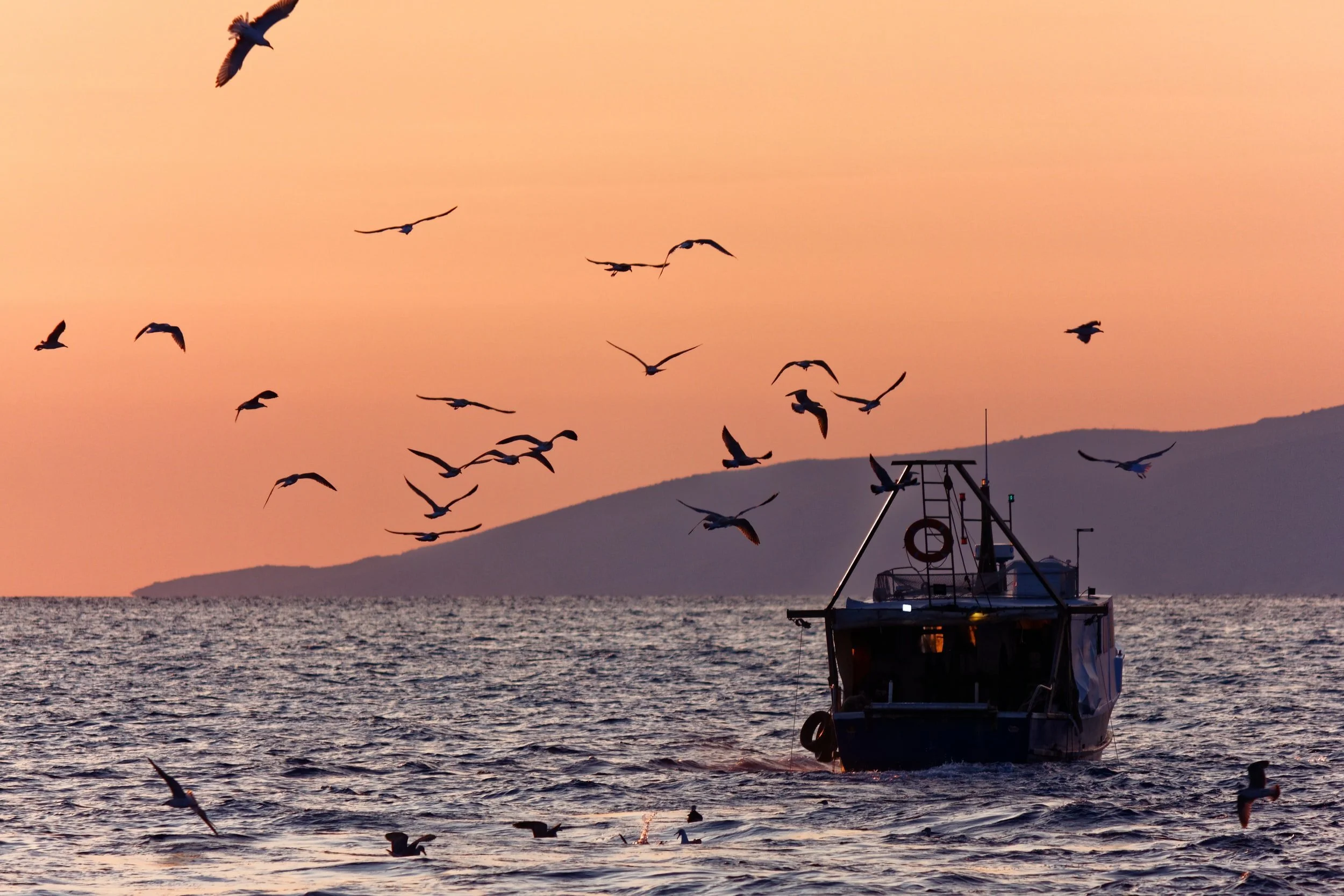The UK cannot claim climate leadership until it ends destructive fishing
With the climate debate still failing to adequately address the vital importance of ocean protection, Seahorse’s Ocean and Blue Economy Practice is proud to be working with both the Blue Marine Foundation and Greenpeace UK to bring fishers, campaigners and politicians together in calling for urgent action from Government.
At a COP26 event, renowned oceanographer Sylvia Earle made one of the most crucial interventions of the entire conference: that ending unsustainable commercial exploitation of the ocean is as vital as curbing fossil fuel use.
The science behind this statement is clear: climate resilience is inextricably linked with ocean health. Over the past 200 years, the ocean has captured 90% of excess heat and a third of anthropogenic carbon dioxide emissions, making it the world’s largest carbon sink. Without this powerful service provided by the ocean system, our societies would undoubtedly have seen even more catastrophic impacts of climate change already.
But the ocean’s ability to regulate the climate is not limitless. As water warms, it loses its capacity to absorb carbon dioxide and begins to release it. The ocean’s role in climate change is also not without serious consequences. Ocean warming and acidification are highly damaging to marine life, perhaps most vividly illustrated by the destruction of coral reefs. Migration of fish stocks in response to changing temperatures also threaten the food security and livelihoods of coastal communities and risk creating conflict and geopolitical tension.
The ocean is not just a victim of the changing climate, but also one of the most powerful solutions we have for the climate crisis. Much of the ocean’s ability to regulate climate change is due to marine life capturing and storing significant amounts of carbon. Protecting communities of marine life from the pressures of fishing therefore allows them to rebound, which has the added benefit of allowing them to store more carbon. Putting areas of the ocean entirely off-limit to destructive fishing practices would also cut off another direct source of carbon emissions – from seabed stores damaged by bottom-trawling – which is estimated to be equivalent to the global aviation industry!
Ocean action clearly presents proven win-win solutions for climate, nature, and the lives and livelihoods which depend directly and indirectly on the marine environment. So why does the climate debate – both in the public sphere and in the worlds of finance and diplomacy – still largely continue to overlook the fundamental importance of the ocean and fail to unlock its full potential in delivering climate resilience?
There is no viable pathway to 1.5oC that doesn’t involve the protection and restoration of marine biodiversity. However, the power of the industrial fishing lobby, not to mention the geopolitical agendas which that sector is often used to mask, mean that governmental and intergovernmental regulators repeatedly let the fishing industry off the hook when it comes to climate action. Furthermore, the climate impacts of fishing activity within states’ sovereign waters often directly contradict their governments’ stated climate ambitions – a situation which continues to attract far too little scrutiny.
In that context, we are proud that Seahorse has been able to support crucial recent work by two of the UK’s most ambitious and effective campaigning organisations – Blue Marine Foundation (BLUE) and Greenpeace UK – to rewrite the narrative. With the team at BLUE we have produced a new parliamentary briefing, which was shared with all MPs ahead of COP26. This document seeks to equip MPs with all of the background information they need to understand the dire state of UK waters, where fishing quota is consistently set above scientific advice and destructive bottom-trawling takes place in 97% of our supposedly protected offshore marine areas, and confidently make effective interventions in Parliament to deliver the political action needed.
MPs should be empowered to speak up in full knowledge that, as well as being a proportionate response to the scale of the climate and nature emergencies, banning destructive fishing would be hugely popular with the UK public and unite those across the political spectrum. 4 out of 5 people polled by YouGov agreed that supertrawlers should be banned in Marine Protected Areas, including 85% of Conservative voters.
Even more importantly, action to eliminate destructive fishing practices from the UK’s Marine Protected Areas is not only a top priority for major NGOs and supported by the vast majority of the UK public, but also championed by local fishers across the UK’s whose livelihoods and communities are on the brink as fish populations collapse under the pressure on large-scale industrial fishing. It has therefore been a privilege to have supported the team at Greenpeace on the Westminster launch of a joint statement of emergency from a ground-breaking new coalition of environmentalists, small-scale fishers and fishing businesses, who have formed a perhaps unlikely alliance in order to demonstrate to the Government that the time for empty claims is over and that it is time for action.
Although COP26 has now drawn to a close, the UK retains its presidency until late next year and is expected to announce its plans and objectives for that after the conference. Other key milestones for 2021-22 include EU fisheries negotiations, the finalisation of a legally-binding High Seas Treaty and the UN Biodiversity conference (COP15) in Kunming, China. Throughout this crucial year, it is absolutely vital that the UK Government recognises and acts upon ocean-climate linkages, seizes the opportunities provided by our new fisheries management landscape, and finally ensures that the reality in our water matches the rhetoric.
Seahorse Environmental’s Ocean Practice is delighted to represent clients such as BLUE and Greenpeace in driving this much-needed action – and if you are part of an impactful campaign, NGO or business which is also looking to be part of the solution, please do get in touch with us at ahammond@seahorseenvironmental.co.uk.

